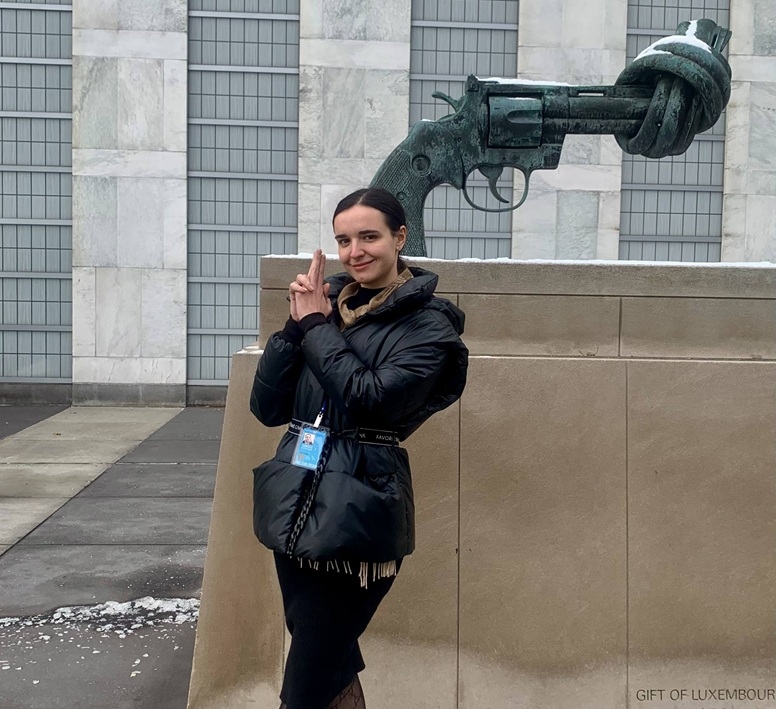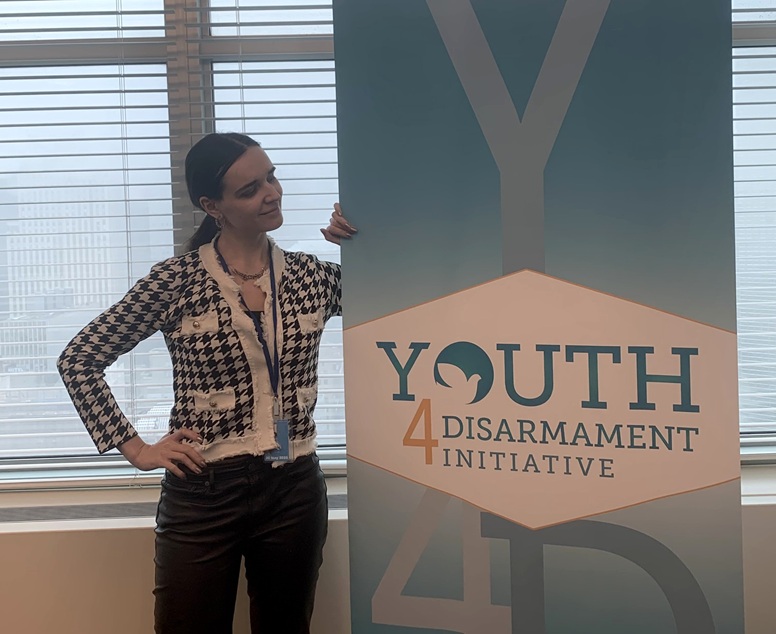Treaty Simulation Course Builds Negotiating Skills
| by Jason Warburg
Alumni of the rigorous role-playing course have gone on to highly successful careers in international diplomacy.

Interning at the United Nations Office for Disarmament Affairs (UNODA) taught me the value of taking initiative.
Based in New York for six months, I focused on global disarmament, nonproliferation, and arms control.
At UNODA, I helped organize key disarmament and nonproliferation events, such as the Third Meeting of States Parties to the Treaty on the Prohibition of Nuclear Weapons (TPNW) and the Third Preparatory Committee for the Non-Proliferation Treaty (NPT). The TPNW is a UN-adopted treaty and the first global pact to delegitimize the development and use of nuclear arms, creating legal pressure on nuclear-armed states and their allies. The Third Preparatory Committee, on the other hand, is the final of three annual meetings leading up to the NPT Review Conference, responsible for fine-tuning the conference’s agenda and drafting recommendations. I believe that success in both arenas can reinforce both treaties, facilitating practical, consensus‑based steps toward disarmament.
I also contributed by drafting reports and internal memos, supporting the launch of new UNODA initiatives, and conducting research on nonproliferation and disarmament issues. These tasks challenged me to navigate the complexities of multilateral diplomacy and honed my research, planning, and organizational skills.
The academic training I had received at the Middlebury Institute equipped me with the policy and technical knowledge I needed for this internship. Courses such as Nonproliferation and Terrorism (NPT) Simulation, Missiles and Missile Defense, Open-Source Tools, and Chemical, Biological, Radiological, and Nuclear (CBRN) Terrorism were especially impactful. I felt confident to perform well in my role.

Contributing to this work gave me deeper insight and understanding into the diplomatic processes behind disarmament negotiations, particularly the challenge of navigating competing national interests and security concerns among stakeholders. I saw the crucial need for an intricate balance between diplomacy, policy making, and technical expertise in the field of nonproliferation.
Witnessing the coordination, strategy, and preparation that takes place behind closed doors was one of my biggest insights. It was eye-opening to observe the immense effort that is required to ensure meaningful international dialogue.
It was eye-opening to observe the immense effort that is required to ensure meaningful international dialogue.
One of the most rewarding aspects was working in a multicultural environment. I had the opportunity to engage with diplomats, experts, and politicians from around the world who brought vast knowledge, unique life stories, languages, and cultural backgrounds to the table.
The highlight of this experience was realizing the importance of taking initiative. Actively seeking out interesting assignments and holding myself to high standards significantly enriched both my learning and contributions. For other students, I would emphasize the value of combining your academic knowledge with the connections you make to pursue professional experiences that genuinely excite you.
Stay curious, take initiative, and don’t hesitate to seek out opportunities that align with your goals.
| by Jason Warburg
Alumni of the rigorous role-playing course have gone on to highly successful careers in international diplomacy.
| by NPTS '18
Anne Pellegrino leveraged the open-source intelligence skills she honed as a graduate research assistant at the James Martin Center for Nonproliferation Studies to land a job at a top satellite imagery firm.
| by Caitlin Fillmore
Jason Blazakis lends his expertise to Sigonella La sfida, whichpremiered 40 years after the hijacking of a cruise ship, with 97 passengers taken hostage.